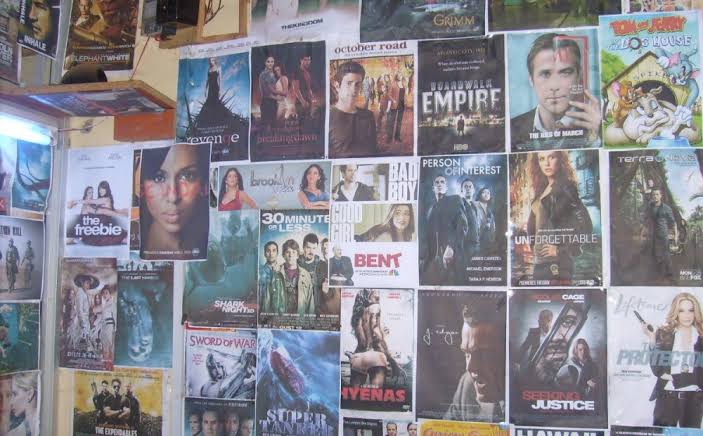
For ‘young’ people, starting your very own business and becoming self employed is the most suitable alternative to the ever growing hard to get 9 to 5 jobs. Starting a business is always the best alternative to the ever elusive jobs.
A survey by the Kenya National Bureau of Statistics (KNBS) revealed that seven (7) million Kenyans are unemployed. An additional figure of over 1.4 million are actively looking for employment. With those figures, it is easy to see why more and more people are looking for alternatives.
Because we know very many business ventures require huge amounts of capital to get started, this new How To series will only show you how to start and execute several small business that require capital from as little as 5,000 Kenyan Shillings. Thus giving you the keys to the kingdom of starting a profitable business with little or no capital.
If you are also just looking for a side hustle to maybe supplement your 9 to 5 or full time job, this is for you.
All that you need to thrive in these businesses besides capital, is good customer service of course, great managerial skills, a suitable business location, and a clear cut vision.
Today’s article will show you how to start a Movie Shop business in Kenya. While this not exactly a 5,000 Kenyan Shillings capital business, I am sure you would agree that this is also a very viable option.
The movie shop business is really huge in Kenya and other african countries, especially among the youths. Almost every street you know, has at least one movie shop. The business has employed thousands of young people who would have otherwise been stuck looking for 9 to 5 job opportunities.
While it is not a 5,000 Kenyan Shillings startup, starting a movie shop business is not capital intensive or hectic.

How To Start A Movie Shop Business In Kenya
To start a Movie Shop business in Kenya you will need:
- Location. Identifying a suitable location for your movie shop, should be the very first thing on your list. You will need a location where the demand is high and one that is close to your target market.
Below are some suggestions of suitable locations:
- Close to a university or school. This is very ideal because university or school students are very willing customers.
- Close to a student’s hostel.
- Close to Nairobi CBD or other Town centers.
- Close to residential areas.
- Close to bus stops or bus stations.
- Close to shopping centers.
2. A budget. As with any other business venture, you would need a budget. Do not worry, this article will break down the price points for everything you need.
3. A business premises or office space. After identifying a suitable location, the next thing will be renting a shop. Unlike most other businesses, you do not need a large space to get started. What this means is that you will have the option of being able get a very affordable space from 4,000 Kenyan Shillings to 6,000 Kenyan Shillings. Keep in mind however, that customers users prefer movie shops with space for them lounge while they decide what to buy.
4. A Trade License. Trade licenses are issued by the county government. Keep in mind that the cost varies from county to county. However, it usually costs about 10,000 Kenyan Shillings.
5. A Public Performance License. This is issued by the Music Copyright Society of Kenya (MCSK) and covers the selling of movies, series, playing of music, and other related activities. It costs an average of 2,500 Kenyan Shillings to 4,000 Kenyan Shillings. The Music Copyright Society of Kenya (MCSK) has agents in most county headquarters so you should not have an issue acquiring a license.
6. A Film/Video Regulatory License. This is issued by the Kenya Film Clasification Board (KFCB). It basically regulates the exhibition of films in Cinema theaters. The annual fee for a film/video regulatory license is 10,000 Kenyan Shillings.
7. A Performers Rights Society of Kenya (PRISK) License. This is issued by the Performers Rights Society of Kenya (PRISK) / Kenya Association of Music Producers (KAMP). The license costs around 2000 Kenyan Shillings.
8. You will also send a very good internet connection. This is important when running your movie shop business because it helps you stay up to date with the latest movies and series for your customers. Monthly unlimited internet plans usually cost anything from 2,990 Kenyan Shillings depending on your internet provider.
9. A very fast laptop or desktop computer. This will cost anything from 35,000 Kenyan Shillings, 40,000 Kenyan Shillings or more.
10. A DVD Duplicator. A second hand duplicator with at least 5 DVD writers, goes for around 35,000 Kenyan Shillings.
11. An Antivirus. Kaspersky for example, costs 1,500 Kenyan Shillings. This will protect your laptop from unwanted viruses which might arise via external drives and online sites.
12. An external hard drive. To store your collection of movies and series for back up purposes and also to free up space on your computer. External hard drives, usually go for 5,000 Kenyan Shillings and above.
13. Blank Compact Discs (CDs). You will need this because this is how you will package the movies/series for most of your customers; by burning the movies on to the CDs. A pack of CDs goes for 400 Kenyan Shillings to 500 Kenyan Shillings.
14. Speakers. I mean you will need a good sound for your customers to be able to enjoy previews or trailers of movies that they would potentially buy. These sound systems could go as low as 4,500 Kenyan Shillings, above.
15. A LED TV. This will also enhance the viewing experience for your customers. The starting price for a 32 inch LED TV, is 18,000 Kenyan Shillings.
16. Movie Posters. Think of these as decorations plus marketing tools. They can be very pleasing to eyes when done right. Besides, what says movie shop, more than a couple of movie posters on the wall? Printing said posters especially in colour, would be around 350 Kenyan Shillings.
17. To Know Your Price Point. Movies on CDs, usually costs 50 Kenyan Shillings per movie. Movies on a flash drive, Memory card or Smarphone, usually cost 30 Kenyan Shillings per movie. Armed with this information and of course studying your customers, you can make your own price point.
Was this article helpful? Are there any other How To topics you would like us to write on? Feel free to reach out to Mpesa Pay in the comment section.


